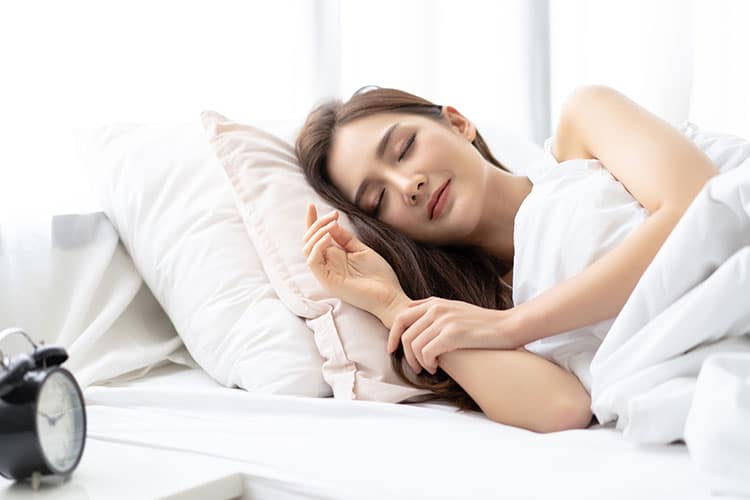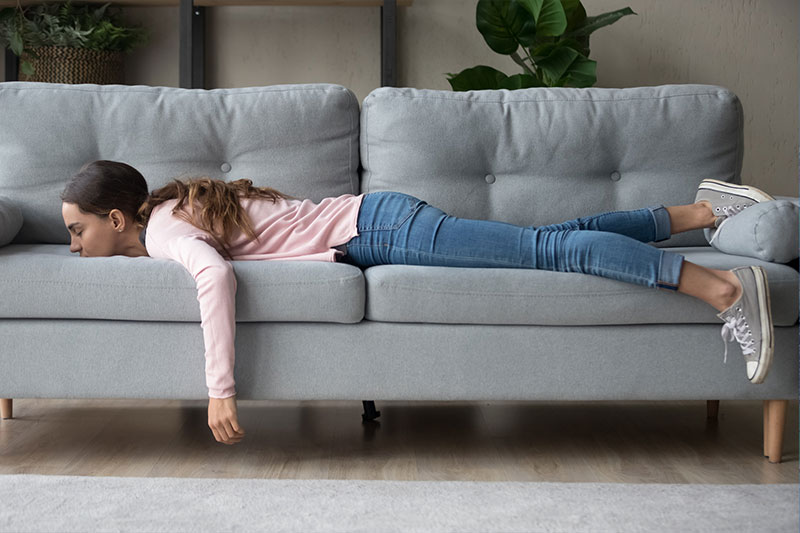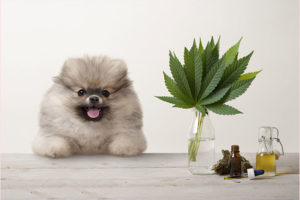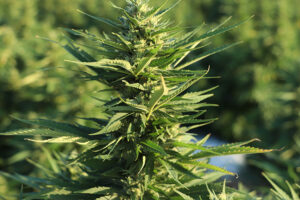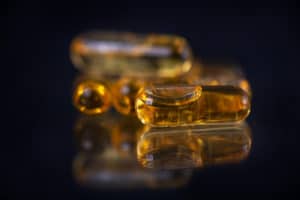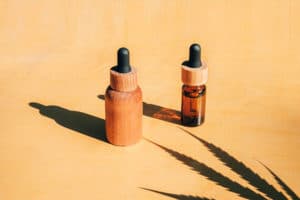While the evidence continues to mount for all of the various benefits CBD may offer, many companies have started to claim that CBD can help you sleep better. So is this true, or just another marketing scam?
We take a look at what CBD is, how it affects the body, and what impact it may have on sleep. We also examine the most recent peer-reviewed literature to provide a definitive answer for whether you should consider CBD oil for sleep.
What is CBD? How Does it Work?
CBD belongs to a class of compounds known as cannabinoids, originally extracted from cannabis plants. The other, more famous, cannabinoid, is THC, which produces the hallucinogenic ‘high’ you get from using marijuana.
While CBD and THC are the two most commonly studied cannabinoids, scientists have identified over 60 cannabinoid-like compounds in cannabis plants.
The Endocannabinoid Receptor System
Cannabinoids interact with the human. This wide-ranging system has regulatory roles in metabolic, vascular, immune, and neurological functions. Most cells in the body have endocannabinoid receptors, to which cannabinoids can bind, allowing them to affect these various processes.
There are two main types of cannabinoid receptors: CB1 and CB2. CB1 receptors predominantly work with neuronal tissue, including brain tissue and the central nervous system. Recent studies have also found CB1 receptors in the liver, thyroid, and uterus.
CB2 receptors are more distributed, often found in immune cells, the spleen, and the gastrointestinal tract, as well as in the brain and central nervous system.
Different cannabinoids bind to various endocannabinoid receptors based on their functions. THC tends to bind strongly to CB1 receptors, while CBD binds to CB2 receptors.
The receptors each compound binds to accounts for the different effects that CBD and THC create. THC often causes hallucinations, feelings of drowsiness, and impacts mental acuity and capacity, while CBD does not.
Since scientists are still working to find out how the endocannabinoid receptor system works, much of what CBD can do remains undiscovered. However, since the endocannabinoid receptor system encompasses and helps regulate so many functions, cannabinoids can affect most of these functions in some way. Identifying how CBD interacts with this system can offer significant clues as to its therapeutic benefits.
How is CBD Made?
Two primary methods produce CBD: extraction and purification. Extraction uses ground-up plant material and specific chemicals to bind to CBD and other cannabinoids while washing everything away. Purification adds several extra steps to remove any other chemicals, including cannabinoids, leaving you with a 100% pure CBD product.
However, since purification is expensive, most companies opt for extraction and stop once they have extracted all the cannabinoids from the plant pulp.
One of the primary concerns people have with CBD oil is that it will cause the same effect as smoking cannabis. Pure CBD oil will not have the same impact as using marijuana because it doesn’t contain any THC, the compound responsible for the high feeling and psychosomatic effects.
CBD doesn’t contain THC or contains minimal THC because it comes from hemp, not the marijuana plant. Hemp is a cousin of Cannabis sativa and Cannabis indica but has significantly less THC and more CBD. This difference makes it the ideal candidate for CBD oil production without the need to filter THC out at a later stage.
Which One is Better?
Many people debate whether buying 100% pure CBD or CBD extract is better. 100% pure CBD has the advantage of being a constant concentration even between batches, so you always know what you’re getting.
However, research suggests that THC and other cannabinoids may have a synergistic effect when used together, which makes the potential therapeutic effects of CBD stronger. Extracts will contain many different cannabinoids and terpenes and may provide a better bang for your buck.
However, note that extracts are less reliable. Concentrations and ratios of THC, CBD, and other compounds may vary from batch to batch, even when you order them from the same manufacturer.
What are the Potential Side Effects of CBD?
Thanks to clinical studies on CBD for epilepsy and psychotic disorders, we know the side effects of CBD. The most common side effects from these studies included:
- Tiredness
- Diarrhea
- Changes in appetite
In general, the side effects were significantly less severe than those of similar medications, which led researchers to conclude that CBD is generally well-tolerated. As CBD continues to undergo more thorough and large-scale clinical trials, we’ll get a more comprehensive picture of the safety of CBD, both for acute and chronic conditions.
CBD that users should be aware of safety precautions that come with using this compound. CBD interferes with common biological targets responsible for drug metabolism.
It can interfere with the function and extraction of several common medications. It also has a high potential for drug interactions. If you plan on using CBD oil for any reason, consult with your physician to make sure it will not affect your other medications or overall well-being before continuing.
Factors Influencing Sleep and Sleep Quality
Many factors can influence the quality and restfulness of your sleep, and these factors differ for every person. Each of the five stages of sleep plays an integral role in restoring your brain and body. Depriving yourself of any of these stages can impact your mental and physical health in both the short and long term.
The Endocannabinoid System and Sleep
The endocannabinoid system helps regulate circadian rhythms and sleep cycles, which suggests that CBD can influence sleep. The endocannabinoid system controls sleep through two main pathways:
- Promoting non-rapid eye movement sleep
- Promoting REM sleep by interacting with melanin-concentrating hormone neurons
Studies have found that blocking the CB1 receptor reduces sleep times while extending waking periods in mice and that endocannabinoids can restore sleep in insomniac rats.
Current Research
As with many other investigations involving CBD, the connection of CBD for sleep is in its early stages. For a drug to get FDA approval, it needs to pass several rounds of testing. Currently, there are no clinical trials registered to test the efficacy and safety of CBD for sleep.
Many small-scale studies suggest that CBD may be useful in improving sleep. One notable study showed that CBD improved the sleep quality of patients with Parkinson’s disease, while another study showed it reduced insomnia in patients with PTSD-related sleep disturbances.
However, conflicting studies suggest that CBD may interfere with stage 3 sleep, especially when used in conjunction with THC.
One of the most extensive studies done recently looked at 409 people with insomnia. This study examined the effect of using cannabis flowers on self-perceived insomnia over 23 months. Participants identified their insomnia on a scale of 1 – 10, with ten being the worst. At the beginning of the study, the average symptom intensity was 6.6, and this decreased to 2.2 by the end.
Unfortunately, this study involved several discrepancies, including self-reporting, the lack of a control group, and lack of placebo. Also, since participants used cannabis instead of pure CBD, it’s difficult to connect the effect to CBD alone, particularly as THC is known to cause drowsiness. The study did not control dosages either, apart from placing upper limits on both THC and CBD concentrations.
Another retrospective case study looked at 103 adult patients who used CBD as an adjunct to their usual treatment. The study looked at the impact of CBD on both anxiety and sleep quality. The participants received a controlled dose of 25 mg per day of CBD in capsule form. Patients with anxiety received their CBD in the morning, while patients with insomnia or poor sleep took theirs in the evening.
While 103 patients started the study, only 73 completed the course. Of these, 66% of patients reported an improvement in their sleep but noted that these improvements fluctuated over time. The researchers note that they used a significantly lower dose than usual, which may account for these fluctuations.
As with the first study, this one has several limitations, including the lack of a control group and placebo. However, the researchers did use pure CBD and showed no significant adverse effects during the study.
As with many other studies on CBD, the link between sleep and CBD use remains tenuous. Much of these inconsistencies connect to study limitations and methodologies, which can significantly impact the generation and interpretation of results. However, most studies point to CBD use as a potential therapeutic agent for sleep that avoids many of the psychotropic effects of current medications.
Shopping for CBD
If you decide to use CBD oil for sleep, you must do your research before you buy it. Currently, CBD oil isn’t regulated by the FDA, which means that companies don’t need to meet any minimum quality standards to put their product on the market.
This lack of regulation can lead to differences in the quality of CBD oil, even between different batches from the same manufacturer. Reputable manufacturers use third-party lab tests to determine the quality and concentration of their products. Make sure that any product you purchase has a lab report, and that you know how to read it.
An accurate lab report should contain the following:
- CBD content, either in concentration, total, or per milliliter of the product
- Other cannabinoids, such as THC or others. Products advertised as 100% pure CBD oil shouldn’t contain any other compounds, but a broad spectrum CBD product will.
- Flavonoids and terpenes, which are compounds often extracted along with the cannabinoids. These mostly affect the taste and smell of the oil, though evidence suggests that terpenes can produce synergistic effects with CBD.
- Residual solvents, which are the compounds used to extract CBD from the original plant pulp. Solvents evaporate, but some may remain in the final product. Ideally, you want as few of these compounds as possible.
Where to Buy
You will find the best CBD oil at your nearest dispensary or cannabis shop. These shops tend to screen their products carefully, so you’re less likely to get an inferior product.
The employees have extensive knowledge of cannabis and can help you choose the right CBD oil for your needs. They’ll also recommend the correct dose and provide you with a thorough overview of their products and their potential benefits.
Similarly, check if your nearest pharmacy or health shop sells CBD oil. Large pharmacy chains, in particular, are more likely to stock high-quality products, though their staff won’t be as knowledgeable as those in a cannabis shop.
As a last resort, you can buy CBD oil online. Unfortunately, many shady websites will sell poor-quality products at high-end prices.
Make sure you look for products with third-party lab reports and verify that the lab exists before buying anything. Some sellers may fake lab reports that appear legitimate. Avoid buying from Amazon, as all their products are hemp oils that contain little to no CBD.
Conclusion
While CBD doesn’t function as a cure-all, it may have a positive impact on sleep quality and reduce insomnia. At the moment, much of the research is in the initial stages, which means you will see contradictory information and poor-quality studies. However, as CBD becomes increasingly popular, the number of studies will increase, and a more definitive picture should emerge.
If you want to try CBD oil for sleep, tread carefully. Consult with your physician before trying any alternative products.
Your doctor can warn you of any potential drug interactions or health concerns that may apply to you. A competent physician will explain the benefits and drawbacks of using CBD and whether it’s a suitable option for you.
Finally, always buy CBD from a reputable seller. Decide whether you want broad-spectrum or pure CBD and always check the lab report before purchasing a product, whether from a local store or online.
FAQs About CBD & Sleep
Question: Where does CBD come from?
Answer: CBD belongs to a class of compounds known as cannabinoids, originally extracted from cannabis plants. The other, more famous, cannabinoid, is THC, which produces the hallucinogenic ‘high’ you get from using marijuana.
Question: What are the two main types of cannabinoid receptors in the human body?
Answer: The main types of cannabinoid receptors are CB1 and CB2 receptors. CB1 and CB2. CB1 receptors predominantly work with neuronal tissue, including brain tissue and the central nervous system. Recent studies have also found CB1 receptors in the liver, thyroid, and uterus. CB2 receptors are more distributed, often found in immune cells, the spleen, and the gastrointestinal tract, as well as in the brain and central nervous system.
Question: Which is better between 100% pure CBD and CBD extract?
Answer: Many people debate whether buying 100% pure CBD or CBD extract is better. 100% pure CBD has the advantage of being a constant concentration even between batches, so you always know what you’re getting. However, research suggests that THC and other cannabinoids may have a synergistic effect when used together, which makes the potential therapeutic effects of CBD stronger. Extracts will contain many different cannabinoids and terpenes and may provide a better bang for your buck.
Question: How does the endocannabinoid system help in regulating sleep?
Answer: The endocannabinoid system helps regulate circadian rhythms and sleep cycles. It promotes non-rapid eye movement sleep and REM sleep by interacting with melanin-concentrating hormone neurons.
Question: How does CBD help you to sleep better?
Answer: Research on CBD is still in the early stage, but Cannabinoids interact with the human endocannabinoid receptor system. This wide-ranging system has regulatory roles in metabolic, vascular, immune, and neurological functions. Studies have found that blocking the CB1 receptor reduces sleep times while extending waking periods in mice and that endocannabinoids can restore sleep in insomniac rats.
